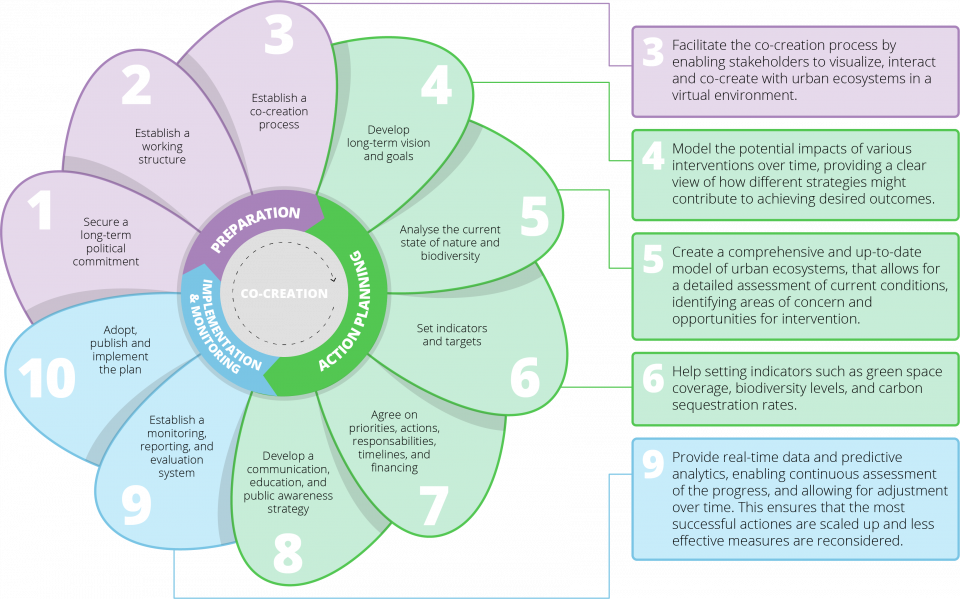
Through its activities, VARCITIES has explored a number of key topics linked with the improvement of health & well-being in urban areas, identifying existing shortcomings, knowledge gaps and the opportunities available for policy stakeholders to address them. In our series of policy and technical briefs, we present recommendations that we think most critical.
With the rising demand and interest for urban nature planning, particularly with the recent adoption of the EU Nature Restoration Law, digital twin technologies can play a key role in advancing green initiatives and targeting urban nature plans requirements.
Following the adoption of the European Green Deal in 2019 by the European Commission and the subsequent revision and adoption of a new Biodiversity Strategy, clear goals for nature restoration by 2030 have been set. City-led policy initiatives aiming to translate these high-level goals into actionable solutions are now running, particularly with the Green City Accord, the Greening Cities Partnership of the EU Urban Agenda and the recent Berlin Urban Nature Pact. All of these initiatives call for the development and implementation of Urban Nature Plans, reflecting a growing interest from cities in frameworks for integrating nature into urban planning, which has led to several research initiatives on the topic. The EU Nature Restoration Law adopted last June 2024 further formalized the nature restoration goals of the EU with binding targets for the restoration of degraded ecosystems for Member States. The regulation mandates the implementation of specific measures aimed at restoring nature within urban ecosystems (Art. 14(4)), further highlighting the need for urban nature planning.
In this context, Digital Twin technologies hold significant potential to support the development of these city level plans, and their execution, providing data-driven insights that align with the requirements established by the EU law. Following the toolkit and guidance provided by the EC on the development of Urban Nature Plans, digital twins can play an important role supporting cities in crucial aspects of this approach.
This policy brief from VARCITIES explores the potential of digital twins for municipalities to advance sustainable urban development, based on VARCITIES experience with its own digital twin tool, the Health & Well-Being Platform. This policy brief highlights existing and potential benefits and provides concrete measures to help cities implement digital twin technologies for greener, healthier cities.
Discover the Policy Brief: https://varcities.eu/policy-brief-digital-twins-for-greener-healthier-cities/
